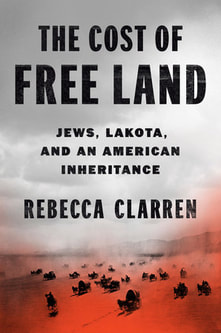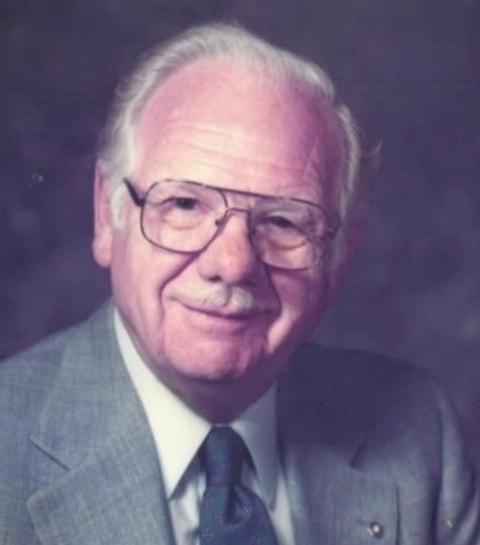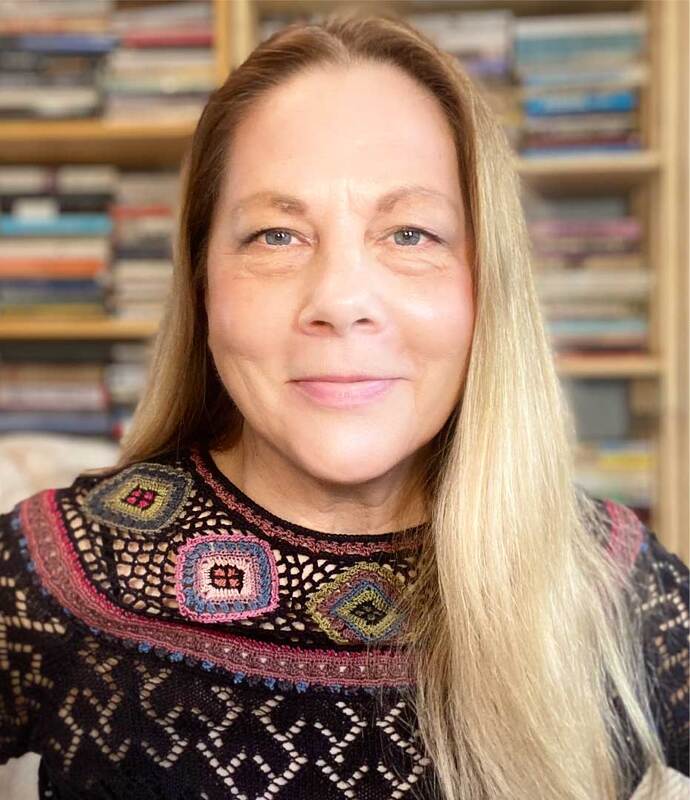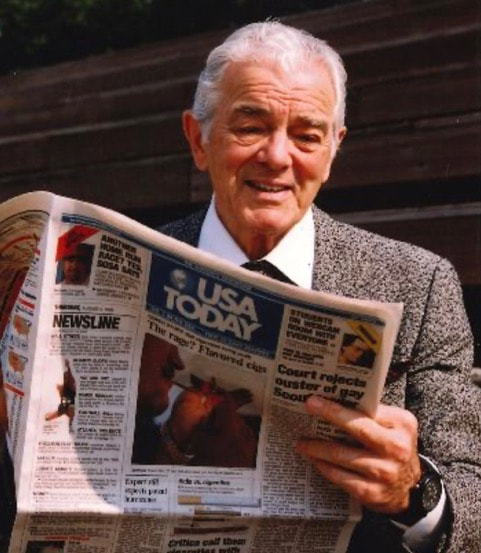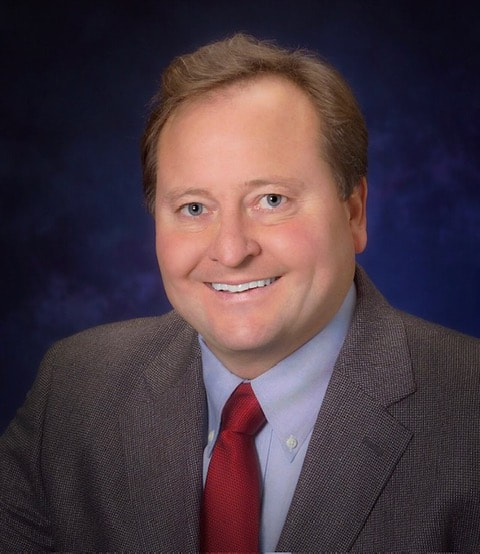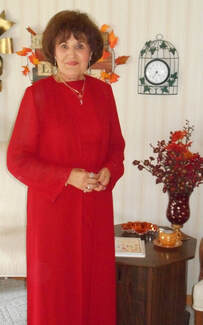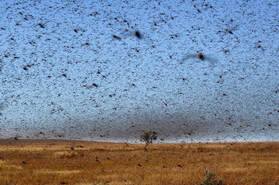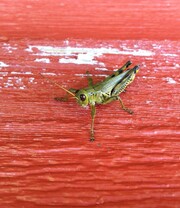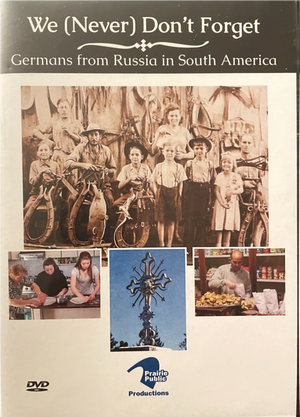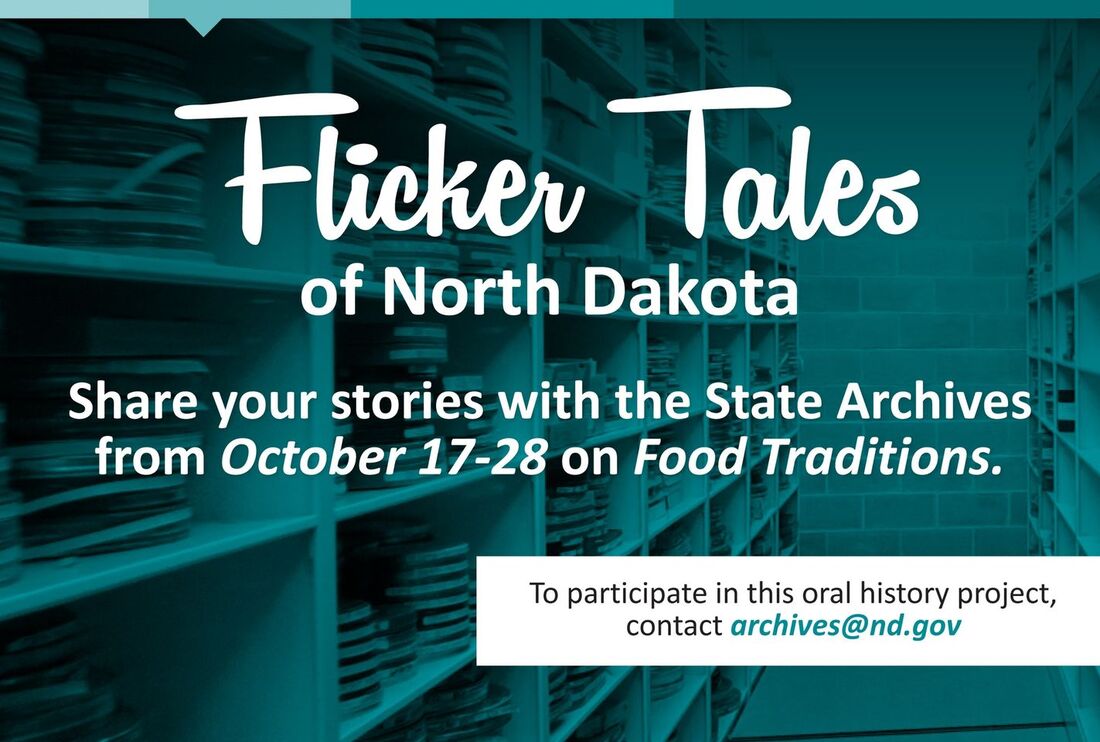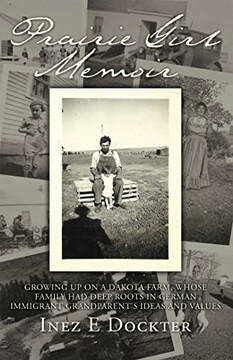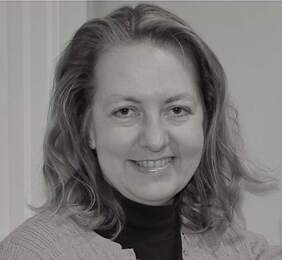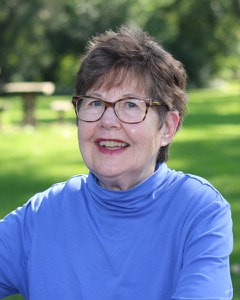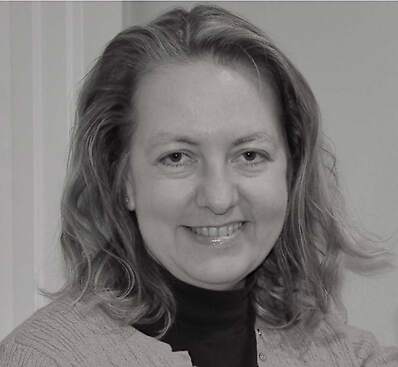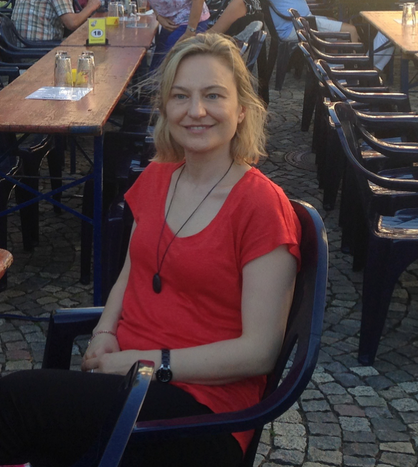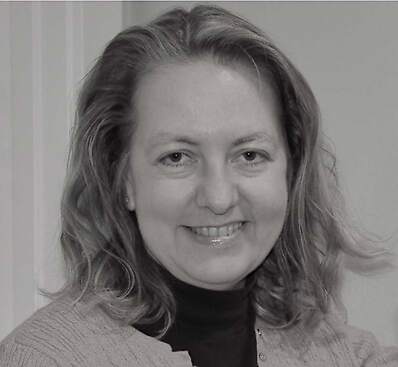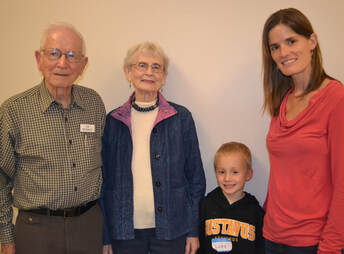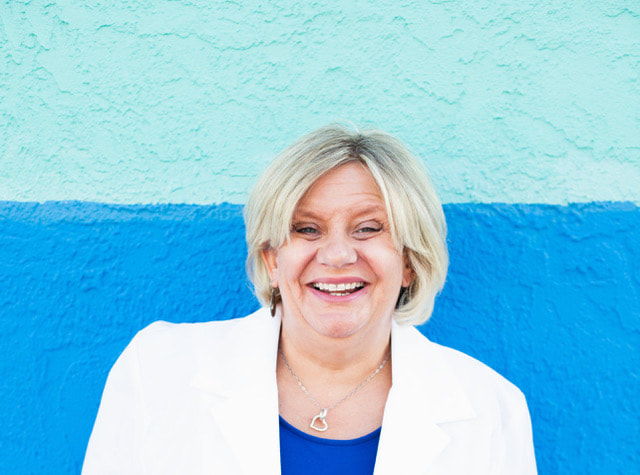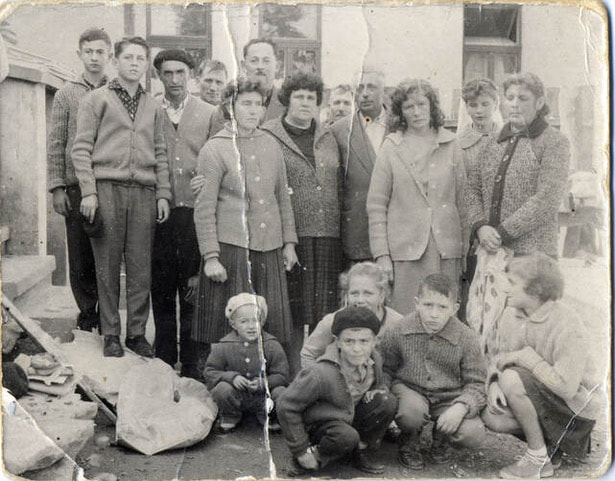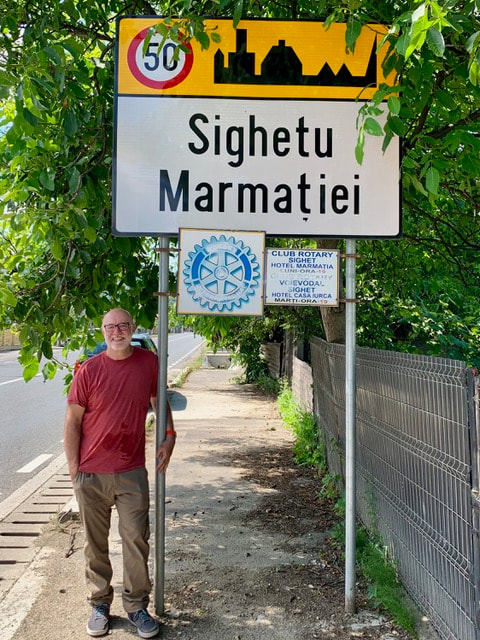Scheduled Events
Saturday, Sept 21, 2024
Tentatively at a restaurant
Tentatively at a restaurant
Saturday, Oct 19, 2024
Berea Lutheran Church
7538 Emerson Avenue South
Richfield, MN. 55423
Tentative times:
1:00 p.m. - Chapter Meeting
2:00 p.m. - Program with guest speaker
Berea Lutheran Church
7538 Emerson Avenue South
Richfield, MN. 55423
Tentative times:
1:00 p.m. - Chapter Meeting
2:00 p.m. - Program with guest speaker
Saturday, Nov 16, 2024
Berea Lutheran Church
7538 Emerson Avenue South
Richfield, MN. 55423
Tentative times:
1:00 p.m. - Chapter Meeting
2:00 p.m. - Program with guest speaker
Berea Lutheran Church
7538 Emerson Avenue South
Richfield, MN. 55423
Tentative times:
1:00 p.m. - Chapter Meeting
2:00 p.m. - Program with guest speaker
Saturday, Dec 7, 2024
Berea Lutheran Church
7538 Emerson Avenue South
Richfield, MN. 55423
Tentative times:
1:00 p.m. - Chapter Meeting
2:00 p.m. - Program with guest speaker
Berea Lutheran Church
7538 Emerson Avenue South
Richfield, MN. 55423
Tentative times:
1:00 p.m. - Chapter Meeting
2:00 p.m. - Program with guest speaker
Meeting Location
|
Location of Meetings:
(unless otherwise published) |
Berea Luthern Church
7538 Emerson Avenue South Richfield, MN 55423 |
Most chapter events are held in the fellowship hall on the lower (basement) level. This level can be accessed via stairs or elevator. The church has dedicated handicap parking spots near the ramp with doors to the elevator level (east side).
Zoom Details:
After polling chapter members, the board decided to hold fall meetings using the application called Zoom. This video conferencing technology enables us to remain in the comfort and safety of our homes and connect via internet.
New to Zoom? You must download the software. [The software download is FREE; the chapter buys a paid membership to host meetings.] The Zoom application can be used on many devices that can access the internet, including: Desktop computers, Notebook computers, Tablet computers, Smart phones
A tutorial is available via You Tube and recommended so you can become familiar with the application (video below). You’ll want to know how to mute and unmute, and how to “raise your hand” if you want to ask a question or make a comment during a Zoom meeting. Just like being in a classroom, this is so we don’t all talk at the same time, but wait for the meeting moderator to recognize us. The tutorial also discusses the “Chat” feature.
Members should watch for an email from a chapter officer before our scheduled chapter meetings. This will include a link (URL) to connect to the Zoom meeting.
New to Zoom? You must download the software. [The software download is FREE; the chapter buys a paid membership to host meetings.] The Zoom application can be used on many devices that can access the internet, including: Desktop computers, Notebook computers, Tablet computers, Smart phones
A tutorial is available via You Tube and recommended so you can become familiar with the application (video below). You’ll want to know how to mute and unmute, and how to “raise your hand” if you want to ask a question or make a comment during a Zoom meeting. Just like being in a classroom, this is so we don’t all talk at the same time, but wait for the meeting moderator to recognize us. The tutorial also discusses the “Chat” feature.
Members should watch for an email from a chapter officer before our scheduled chapter meetings. This will include a link (URL) to connect to the Zoom meeting.
Past Events
Saturday, April 27, 2024
Berea Lutheran Church
7538 Emerson Avenue South
Richfield, MN. 55423
*NOTE the different times
11:00 a.m. - Program
12:30 p.m. - Potluck Meal
1:30 p.m. - Library Presentation
Program: Annual Spring Banquet and Author Rebecca Clarren joins us via Zoom for a discussion of her recent book, The Cost of Free Land.
Rebecca’s Russian Jewish great-great-grandparents Sinykin homesteaded in South Dakota on land deeded from the federal government. As a journalist covering the American West, Rebecca learned about Native American Lakota dispossessed of their lands and shunted onto reservations. Rebecca reflects on oppression, reconciliation and atonement in this family history of Jews, Lakota, and an American Inheritance. Voted a Best Book of 2023 by Kirkus Reviews, The Jewish Forward, Tribal College Journal, and The Christian Science Monitor.
Berea Lutheran Church
7538 Emerson Avenue South
Richfield, MN. 55423
*NOTE the different times
11:00 a.m. - Program
12:30 p.m. - Potluck Meal
1:30 p.m. - Library Presentation
Program: Annual Spring Banquet and Author Rebecca Clarren joins us via Zoom for a discussion of her recent book, The Cost of Free Land.
Rebecca’s Russian Jewish great-great-grandparents Sinykin homesteaded in South Dakota on land deeded from the federal government. As a journalist covering the American West, Rebecca learned about Native American Lakota dispossessed of their lands and shunted onto reservations. Rebecca reflects on oppression, reconciliation and atonement in this family history of Jews, Lakota, and an American Inheritance. Voted a Best Book of 2023 by Kirkus Reviews, The Jewish Forward, Tribal College Journal, and The Christian Science Monitor.
Saturday, March 16, 2024
Berea Lutheran Church
7538 Emerson Avenue South
Richfield, MN. 55423
1:00 p.m. - Chapter Meeting
2:00 p.m. - Program with guest speaker
Program: Gary Lehr – From Cold War to Hot War: A Personal Story
Gary’s presentation will draw the parallels of life in the USSR during the Cold War 1970’s, its collapse in 1991, and the chaos which ensued, and the Putin years from 2000 until now: the dramatic increase of in-country repression, and the Hot War in Ukraine.
Berea Lutheran Church
7538 Emerson Avenue South
Richfield, MN. 55423
1:00 p.m. - Chapter Meeting
2:00 p.m. - Program with guest speaker
Program: Gary Lehr – From Cold War to Hot War: A Personal Story
Gary’s presentation will draw the parallels of life in the USSR during the Cold War 1970’s, its collapse in 1991, and the chaos which ensued, and the Putin years from 2000 until now: the dramatic increase of in-country repression, and the Hot War in Ukraine.
Saturday, February 17, 2024
Berea Lutheran Church
7538 Emerson Avenue South
Richfield, MN. 55423
10:00 a.m. - Library open for Research
1:00 p.m. - Chapter Meeting
2:00 p.m. - Program with guest speaker
Program: Matt Klee - Tracing the Migration of German Colonists to South Russia in 1809
Recently acquired Fond 383 files from the St. Petersburg archive document the travel of over 1000 families from Baden, Alsace, Pfalz and Hesse to the Black Sea area. Data is from the Lists of passports issued in Frankfurt am Main in 1809, to their border crossing into Russia at Grodno (now in Belarus), to their destination to Ekaterinoslav where they spent the winter of 1809-1810.
This presentation follows the overland journey of these colonists. It includes colonists who settled in all of the Black Sea areas of Glückstal, Kutschurgan, Beresan, Liebental, Molotschna, Crimea, etc.
Matt will also discuss how these valuable documents were obtained and how they were used to break down brick walls in his personal family history research.
Matt is a North Star Chapter member who grew up in Halliday, ND and graduated from NDSU. He worked for Excel Energy and is now retired. He is the spokesperson and webmaster for the GRHS Crimea RIG and webmaster for the KET RIG. He is also involved in the translation of records from Russian and Ukrainian Archives.
Berea Lutheran Church
7538 Emerson Avenue South
Richfield, MN. 55423
10:00 a.m. - Library open for Research
1:00 p.m. - Chapter Meeting
2:00 p.m. - Program with guest speaker
Program: Matt Klee - Tracing the Migration of German Colonists to South Russia in 1809
Recently acquired Fond 383 files from the St. Petersburg archive document the travel of over 1000 families from Baden, Alsace, Pfalz and Hesse to the Black Sea area. Data is from the Lists of passports issued in Frankfurt am Main in 1809, to their border crossing into Russia at Grodno (now in Belarus), to their destination to Ekaterinoslav where they spent the winter of 1809-1810.
This presentation follows the overland journey of these colonists. It includes colonists who settled in all of the Black Sea areas of Glückstal, Kutschurgan, Beresan, Liebental, Molotschna, Crimea, etc.
Matt will also discuss how these valuable documents were obtained and how they were used to break down brick walls in his personal family history research.
Matt is a North Star Chapter member who grew up in Halliday, ND and graduated from NDSU. He worked for Excel Energy and is now retired. He is the spokesperson and webmaster for the GRHS Crimea RIG and webmaster for the KET RIG. He is also involved in the translation of records from Russian and Ukrainian Archives.
Saturday, January 20, 2024
Berea Lutheran Church
7538 Emerson Avenue South
Richfield, MN. 55423
1:00 p.m. - Chapter Meeting
2:00 p.m. - Program
Program: Video: It’s All Earth and Sky
“It’s all earth and sky!” was the reaction of one German-Russian immigrant when she arrived on the plains of the Midwest. Like many others who came to the region seeking a land of promise and opportunity, she and her family endured – and prevailed – on this rich, expansive landscape.
Immigration implies departure as well as arrival. Transport from one country to another may mean deportation; it inescapably includes exile whether voluntary or forced, and brings disruption to families in the old country and in the new. Immigrants require courage and fortitude, even when they are weak and poor. Like many others who have come here seeking a land of promise and opportunity, Germans from Russia have suffered, and they have prevailed. Since their background and history is as rich in texture as it is in diversity, they serve here as a model of assimilation of other ethnic groups into American society. Five representative Germans from Russia, who have attained success and stability, share their insights on the process of becoming American.
Arthur Flegel is the founder of Flegel’s, a successful furniture store in Menlo Park, CA.
Debra Marquart is a creative writer and a professor at Iowa State University in Ames, IA.
Al Neuharth lives in Cocoa Beach, FL, and is a journalist and founder of “USA Today.”
Henry Schmick of Cheyenne, WY, is a cattle raiser, beet farmer, helicopter mechanic, and member of the National Guard.
Brian Schweitzer is a rancher, soil scientist, and governor of the state of Montana.
Berea Lutheran Church
7538 Emerson Avenue South
Richfield, MN. 55423
1:00 p.m. - Chapter Meeting
2:00 p.m. - Program
Program: Video: It’s All Earth and Sky
“It’s all earth and sky!” was the reaction of one German-Russian immigrant when she arrived on the plains of the Midwest. Like many others who came to the region seeking a land of promise and opportunity, she and her family endured – and prevailed – on this rich, expansive landscape.
Immigration implies departure as well as arrival. Transport from one country to another may mean deportation; it inescapably includes exile whether voluntary or forced, and brings disruption to families in the old country and in the new. Immigrants require courage and fortitude, even when they are weak and poor. Like many others who have come here seeking a land of promise and opportunity, Germans from Russia have suffered, and they have prevailed. Since their background and history is as rich in texture as it is in diversity, they serve here as a model of assimilation of other ethnic groups into American society. Five representative Germans from Russia, who have attained success and stability, share their insights on the process of becoming American.
Arthur Flegel is the founder of Flegel’s, a successful furniture store in Menlo Park, CA.
Debra Marquart is a creative writer and a professor at Iowa State University in Ames, IA.
Al Neuharth lives in Cocoa Beach, FL, and is a journalist and founder of “USA Today.”
Henry Schmick of Cheyenne, WY, is a cattle raiser, beet farmer, helicopter mechanic, and member of the National Guard.
Brian Schweitzer is a rancher, soil scientist, and governor of the state of Montana.
Saturday, December 9, 2023
Berea Lutheran Church
7538 Emerson Avenue South
Richfield, MN. 55423
11 AM - Set up food tables
12 PM - Pot luck meal
Program: Weihnachtsfest
Annual Christmas potluck meal including ethnic foods. Place settings and beverages provided by chapter. Program can include singing seasonal and holiday songs in English and German. Sometimes a special visitor shows up.
7538 Emerson Avenue South
Richfield, MN. 55423
11 AM - Set up food tables
12 PM - Pot luck meal
Program: Weihnachtsfest
Annual Christmas potluck meal including ethnic foods. Place settings and beverages provided by chapter. Program can include singing seasonal and holiday songs in English and German. Sometimes a special visitor shows up.
Saturday, November 18, 2023
Berea Lutheran Church
7538 Emerson Avenue South
Richfield, MN. 55423
1:00 p.m. - Chapter Meeting with election of officers
2:00 p.m. - Program with guest speaker
Program: Ron Scherbenski - Lost in Russia: Surviving Putin’s Two Wars
A story from Valerie Ingram Stewart, Spokane, Washington, as told by Ron Scherbenski. Valerie began the search for her two half-siblings in 1990 after the death of her father, Michael Renner. They were found in 2002, living in Kramatorsk in the northern Donetsk region of Ukraine. In 2014, Russia “annexed” the Crimean peninsula; and then on February 24, 2022, Russia invaded Ukraine. The families fled from their home in Kramatorsk amid the invasion, and this is their story now. This contemporary exodus was presented by Valerie at the GRHS 2023 Convention and will be shared with us by chapter member Ron Scherbenski.
7538 Emerson Avenue South
Richfield, MN. 55423
1:00 p.m. - Chapter Meeting with election of officers
2:00 p.m. - Program with guest speaker
Program: Ron Scherbenski - Lost in Russia: Surviving Putin’s Two Wars
A story from Valerie Ingram Stewart, Spokane, Washington, as told by Ron Scherbenski. Valerie began the search for her two half-siblings in 1990 after the death of her father, Michael Renner. They were found in 2002, living in Kramatorsk in the northern Donetsk region of Ukraine. In 2014, Russia “annexed” the Crimean peninsula; and then on February 24, 2022, Russia invaded Ukraine. The families fled from their home in Kramatorsk amid the invasion, and this is their story now. This contemporary exodus was presented by Valerie at the GRHS 2023 Convention and will be shared with us by chapter member Ron Scherbenski.
Saturday, October 21, 2023
Berea Lutheran Church
7538 Emerson Avenue South
Richfield, MN. 55423
1:30 p.m. - Chapter Meeting
2:00 p.m. - Program with guest speaker
Program: Loretta Welk-Jung – Tribute to Lawrence Welk
Loretta Welk-Jung, of Jamestown, ND, will present her program, “A Tribute to Lawrence Welk,” for our October program.
Welk-Jung’s father is a first cousin of Lawrence Welk, and he immigrated to the US from Russia at age five. Lawrence Welk’s family also immigrated at the same time, and both families settled in Strasburg, North Dakota.
Welk-Jung will share memoirs she has collected from Welk’s legacy, along with her personal encounters with the Welk family. She speaks some German, understands most of the language and strums a guitar to German folk songs.
Welk-Jung presented her program at the 2021 GRHS convention of Germans from Russia in Bismarck, ND.
7538 Emerson Avenue South
Richfield, MN. 55423
1:30 p.m. - Chapter Meeting
2:00 p.m. - Program with guest speaker
Program: Loretta Welk-Jung – Tribute to Lawrence Welk
Loretta Welk-Jung, of Jamestown, ND, will present her program, “A Tribute to Lawrence Welk,” for our October program.
Welk-Jung’s father is a first cousin of Lawrence Welk, and he immigrated to the US from Russia at age five. Lawrence Welk’s family also immigrated at the same time, and both families settled in Strasburg, North Dakota.
Welk-Jung will share memoirs she has collected from Welk’s legacy, along with her personal encounters with the Welk family. She speaks some German, understands most of the language and strums a guitar to German folk songs.
Welk-Jung presented her program at the 2021 GRHS convention of Germans from Russia in Bismarck, ND.
Saturday, September 23, 2023
Black Forest Inn
1 East 26th Street and Nicollet Avenue
Minneapolis, MN 55404
3:00 p.m. - Oktoberfest
It’s been several years since the North Star Chapter had a meal out together. Please join us at the restaurant in South Minneapolis for gutes Essen, Trinken und Gemutlichkeit. Reconnect with fellow North Star friends.
Please RSVP by September 21, 2023 to Ron Scherbenski or Paul Maggitti.
Menu options: http://www.blackforestinnmpls.com/pdf/MenuJanuary2023.pdf
1 East 26th Street and Nicollet Avenue
Minneapolis, MN 55404
3:00 p.m. - Oktoberfest
It’s been several years since the North Star Chapter had a meal out together. Please join us at the restaurant in South Minneapolis for gutes Essen, Trinken und Gemutlichkeit. Reconnect with fellow North Star friends.
Please RSVP by September 21, 2023 to Ron Scherbenski or Paul Maggitti.
Menu options: http://www.blackforestinnmpls.com/pdf/MenuJanuary2023.pdf
Saturday, April 29, 2023
Berea Lutheran Church
7538 Emerson Avenue South
Richfield, MN. 55423
Spring Banquet
12:00 p.m. - Social Hour
1:00 p.m. - Potluck Meal
Program: Ron Vosser - “Snake That Cried Like A Baby:” Humor, Stories, and Wit from the Oral Traditions of a Dakota German Prairie Community
From 2015-2017 Ron lived in his old hometown, Wishek, ND. At daily coffee with the locals at a café on main street, he heard, and wrote down, anecdotes, stories, and “chokes” that interested him. This daily outpouring of wit, humor, and tragedy was an outgrowth of the old German from Russia tradition of Maistub, a sometimes intense visiting session period that has been described as “reconstructing the universe.” This material is, by turns, humorous, poignant, and tragic, revealing much about Germans from Russia emotional life, history, and acculturation during their 150 years on the prairie. It will be a kind of Maistub, in an informal setting, with the presenter.
Humanities scholar, speaker, and author of seven books, Ron Vossler grew up on the edges of a dying, yet extremely rich, ethnic culture as transplanted from the steppe to the Dakota prairie. With degrees from Arizona State and the University of North Dakota, Vossler was a lecturer at the University of North Dakota and a Fulbright Fellow. He lives at East Grand Forks, Minnesota.
7538 Emerson Avenue South
Richfield, MN. 55423
Spring Banquet
12:00 p.m. - Social Hour
1:00 p.m. - Potluck Meal
Program: Ron Vosser - “Snake That Cried Like A Baby:” Humor, Stories, and Wit from the Oral Traditions of a Dakota German Prairie Community
From 2015-2017 Ron lived in his old hometown, Wishek, ND. At daily coffee with the locals at a café on main street, he heard, and wrote down, anecdotes, stories, and “chokes” that interested him. This daily outpouring of wit, humor, and tragedy was an outgrowth of the old German from Russia tradition of Maistub, a sometimes intense visiting session period that has been described as “reconstructing the universe.” This material is, by turns, humorous, poignant, and tragic, revealing much about Germans from Russia emotional life, history, and acculturation during their 150 years on the prairie. It will be a kind of Maistub, in an informal setting, with the presenter.
Humanities scholar, speaker, and author of seven books, Ron Vossler grew up on the edges of a dying, yet extremely rich, ethnic culture as transplanted from the steppe to the Dakota prairie. With degrees from Arizona State and the University of North Dakota, Vossler was a lecturer at the University of North Dakota and a Fulbright Fellow. He lives at East Grand Forks, Minnesota.
NOTE: The March 18th meeting is canceled. The presenter was not able to make it due to road conditions.
Saturday, March 18, 2023
Berea Lutheran Church
7538 Emerson Avenue South
Richfield, MN. 55423
1:00 p.m. - Chapter Meeting
2:00 p.m. - Program with guest speaker
Program: Ron Vosser - “Snake That Cried Like A Baby:” Humor, Stories, and Wit from the Oral Traditions of a Dakota German Prairie Community
From 2015-2017 Ron lived in his old hometown, Wishek, ND. At daily coffee with the locals at a café on main street, he heard, and wrote down, anecdotes, stories, and “chokes” that interested him. This daily outpouring of wit, humor, and tragedy was an outgrowth of the old German from Russia tradition of Maistub, a sometimes intense visiting session period that has been described as “reconstructing the universe.” This material is, by turns, humorous, poignant, and tragic, revealing much about Germans from Russia emotional life, history, and acculturation during their 150 years on the prairie. It will be a kind of Maistub, in an informal setting, with the presenter.
Humanities scholar, speaker, and author of seven books, Ron Vossler grew up on the edges of a dying, yet extremely rich, ethnic culture as transplanted from the steppe to the Dakota prairie. With degrees from Arizona State and the University of North Dakota, Vossler was a lecturer at the University of North Dakota and a Fulbright Fellow. He lives at East Grand Forks, Minnesota.
7538 Emerson Avenue South
Richfield, MN. 55423
1:00 p.m. - Chapter Meeting
2:00 p.m. - Program with guest speaker
Program: Ron Vosser - “Snake That Cried Like A Baby:” Humor, Stories, and Wit from the Oral Traditions of a Dakota German Prairie Community
From 2015-2017 Ron lived in his old hometown, Wishek, ND. At daily coffee with the locals at a café on main street, he heard, and wrote down, anecdotes, stories, and “chokes” that interested him. This daily outpouring of wit, humor, and tragedy was an outgrowth of the old German from Russia tradition of Maistub, a sometimes intense visiting session period that has been described as “reconstructing the universe.” This material is, by turns, humorous, poignant, and tragic, revealing much about Germans from Russia emotional life, history, and acculturation during their 150 years on the prairie. It will be a kind of Maistub, in an informal setting, with the presenter.
Humanities scholar, speaker, and author of seven books, Ron Vossler grew up on the edges of a dying, yet extremely rich, ethnic culture as transplanted from the steppe to the Dakota prairie. With degrees from Arizona State and the University of North Dakota, Vossler was a lecturer at the University of North Dakota and a Fulbright Fellow. He lives at East Grand Forks, Minnesota.
Saturday, February 18, 2023
Berea Lutheran Church
7538 Emerson Avenue South
Richfield, MN. 55423
1:00 p.m. - Chapter Meeting
2:00 p.m. - Program with guest speaker
Program: Matt Klee - Das Jahr der Heuschrecke (The Year of the Locust)
This presentation focuses on a very difficult period in the life of German Colonists in South Russia. It began in the spring of 1822 with the first locust invasion. Based on files from the Dnepropetrovsk Archives and excerpts from the 1848 Municipal Reports of the German Settlements on the Black Sea which reflect this period of desperate struggle for human survival in the colonies.
Two hundred years ago, in the early years of colonization from 1803 through the 1820’s, the colonies suffered numerous natural disasters including crop failures, floods, hailstorms, blizzards, livestock epidemics and other misfortunes. Not the least of these were the devastations caused by locusts who stormed in, straight out of the Book of Revelation, and lay waste to the earth.
Matt grew up in Halliday, ND. A graduate of North Dakota State University, he worked for Xcel Energy at the Prairie Island Nuclear Generating Plant in Red Wing. Now retired, Matt is the spokesperson and webmaster for the GRHS Crimea Regional Interest Group and webmaster for the KhersonEkaterinoslav-Taurien (KET) Regional Interest Group. He also translates records from Russian and Ukrainian Archives.
7538 Emerson Avenue South
Richfield, MN. 55423
1:00 p.m. - Chapter Meeting
2:00 p.m. - Program with guest speaker
Program: Matt Klee - Das Jahr der Heuschrecke (The Year of the Locust)
This presentation focuses on a very difficult period in the life of German Colonists in South Russia. It began in the spring of 1822 with the first locust invasion. Based on files from the Dnepropetrovsk Archives and excerpts from the 1848 Municipal Reports of the German Settlements on the Black Sea which reflect this period of desperate struggle for human survival in the colonies.
Two hundred years ago, in the early years of colonization from 1803 through the 1820’s, the colonies suffered numerous natural disasters including crop failures, floods, hailstorms, blizzards, livestock epidemics and other misfortunes. Not the least of these were the devastations caused by locusts who stormed in, straight out of the Book of Revelation, and lay waste to the earth.
Matt grew up in Halliday, ND. A graduate of North Dakota State University, he worked for Xcel Energy at the Prairie Island Nuclear Generating Plant in Red Wing. Now retired, Matt is the spokesperson and webmaster for the GRHS Crimea Regional Interest Group and webmaster for the KhersonEkaterinoslav-Taurien (KET) Regional Interest Group. He also translates records from Russian and Ukrainian Archives.
Have grasshoppers evolved? This grasshopper on the Minnesota prairie in the Twenty-first Century eats latex paint!
Saturday, January 21, 2023
Berea Lutheran Church
7538 Emerson Avenue South
Richfield, MN. 55423
1:00 p.m. - Chapter Meeting
2:00 p.m. - Program with guest speaker
Program: Video: We (Never) Don’t Forget: Germans From Russia in South America
Like North America before the turn of the 1900s, South America was a land of opportunity – a magnet for immigrants from Europe and Asia. Many of these immigrants were directly related to Germans from Russia in the United States and Canada. They were a mixture of Black Sea Germans, Volga Germans, Volhynian Germans, Bessarabian Germans, and Mennonites.
We (Never) Don't Forget: Germans from Russia in South America examines the history, language, music, religion, foodways, and culture of this ethnic group and chronicles how their traditions flourish across generations. We (Never) Don't Forget: Germans From Russia In South America: Produced by Prairie Public Broadcasting and North Dakota State University Libraries, 2015
Producers: Bob Dambach, Michael Miller
Narrator: Dan Michaels
Editor: Andy Garske
Videographers: David Geck, Dave Grant, Barbara Gravel, Ben Stommes
Closed Captioning: Armour Captioning
7538 Emerson Avenue South
Richfield, MN. 55423
1:00 p.m. - Chapter Meeting
2:00 p.m. - Program with guest speaker
Program: Video: We (Never) Don’t Forget: Germans From Russia in South America
Like North America before the turn of the 1900s, South America was a land of opportunity – a magnet for immigrants from Europe and Asia. Many of these immigrants were directly related to Germans from Russia in the United States and Canada. They were a mixture of Black Sea Germans, Volga Germans, Volhynian Germans, Bessarabian Germans, and Mennonites.
We (Never) Don't Forget: Germans from Russia in South America examines the history, language, music, religion, foodways, and culture of this ethnic group and chronicles how their traditions flourish across generations. We (Never) Don't Forget: Germans From Russia In South America: Produced by Prairie Public Broadcasting and North Dakota State University Libraries, 2015
Producers: Bob Dambach, Michael Miller
Narrator: Dan Michaels
Editor: Andy Garske
Videographers: David Geck, Dave Grant, Barbara Gravel, Ben Stommes
Closed Captioning: Armour Captioning
Saturday, December 3, 2022
Berea Lutheran Church
7538 Emerson Avenue South
Richfield, MN. 55423
11 AM - Set up food tables
12 PM - Pot luck meal
Program: Weihnachtsfest
Annual Christmas potluck meal including ethnic foods. Place settings and beverages provided by chapter. Program can include singing seasonal and holiday songs in English and German. Sometimes a special visitor shows up.
7538 Emerson Avenue South
Richfield, MN. 55423
11 AM - Set up food tables
12 PM - Pot luck meal
Program: Weihnachtsfest
Annual Christmas potluck meal including ethnic foods. Place settings and beverages provided by chapter. Program can include singing seasonal and holiday songs in English and German. Sometimes a special visitor shows up.
Saturday, November 12, 2022
*NOTE the date
*NOTE the date
Berea Lutheran Church
7538 Emerson Avenue South
Richfield, MN. 55423
1:00 pm. - Business meeting with election of officers
2:00 pm. - Program with guest speaker
Program: Matt Klee “The Life and Times of Balthasar Böckel 1766-1822”
This presentation is a reconstruction of the life of Balthasar Böckel, of Kronental, Crimea, as told through genealogical records and historical context. His life story is sourced from historical events, local histories, civil records and church records. The story will follow his birth in Baden, Germany, his occupations and marriages, the migration to Russia, and concludes with his colonization and death in Kronental.
Matt grew up in Halliday, ND and graduated from North Dakota State University. He worked for Excel Energy at the Prairie Island Nuclear Generating Plant in Red Wing, Minnesota and is now retired. He is the spokesperson and webmaster for the GRHS Crimea Regional Interest Group and is also involved in translating records from Russian and Ukrainian Archives. His research interests are all of Crimea - especially the colonies of Kronental and Rosental. Descended from Balthasar, Matt is a Great-Great-Great Grandson.
7538 Emerson Avenue South
Richfield, MN. 55423
1:00 pm. - Business meeting with election of officers
2:00 pm. - Program with guest speaker
Program: Matt Klee “The Life and Times of Balthasar Böckel 1766-1822”
This presentation is a reconstruction of the life of Balthasar Böckel, of Kronental, Crimea, as told through genealogical records and historical context. His life story is sourced from historical events, local histories, civil records and church records. The story will follow his birth in Baden, Germany, his occupations and marriages, the migration to Russia, and concludes with his colonization and death in Kronental.
Matt grew up in Halliday, ND and graduated from North Dakota State University. He worked for Excel Energy at the Prairie Island Nuclear Generating Plant in Red Wing, Minnesota and is now retired. He is the spokesperson and webmaster for the GRHS Crimea Regional Interest Group and is also involved in translating records from Russian and Ukrainian Archives. His research interests are all of Crimea - especially the colonies of Kronental and Rosental. Descended from Balthasar, Matt is a Great-Great-Great Grandson.
Special Opportunity
You're invited to share your memories of food traditions with State Archives staff as part of the oral history project “Flicker Tales of North Dakota.” Participants will have their stories recorded by State Archives staff during 20-minute sessions that will be held virtually or by telephone. The recording sessions will be Oct. 17-28. Time slots are limited. To make your reservation, contact the State Archives at [email protected].
Food traditions may seem like a broad topic, but actually this is as simple as talking about a favorite recipe in your family, a favorite tradition, potlucks, church dinners, picnics, even growing and harvesting food on a small or large scale. Please consider sharing your stories with us!
Food traditions may seem like a broad topic, but actually this is as simple as talking about a favorite recipe in your family, a favorite tradition, potlucks, church dinners, picnics, even growing and harvesting food on a small or large scale. Please consider sharing your stories with us!
Saturday, October 15, 2022
Berea Lutheran Church
7538 Emerson Avenue South
Richfield, MN. 55423
1:00 p.m. - Chapter Meeting
2:00 p.m. - Program with guest speaker
Program: Inez Dockter - Prairie Girl Memories
See the post-WWII world of a small south-central North Dakota community of Germans descended from Ukrainian Russian immigrants through the eyes of a young farm girl.
Inez Dockter will talk about her published book, Prairie Girl Memoir, in which she vividly describes her girlhood experiences growing up on a North Dakota farm during the Great Depression and attending a one-room country school.
7538 Emerson Avenue South
Richfield, MN. 55423
1:00 p.m. - Chapter Meeting
2:00 p.m. - Program with guest speaker
Program: Inez Dockter - Prairie Girl Memories
See the post-WWII world of a small south-central North Dakota community of Germans descended from Ukrainian Russian immigrants through the eyes of a young farm girl.
Inez Dockter will talk about her published book, Prairie Girl Memoir, in which she vividly describes her girlhood experiences growing up on a North Dakota farm during the Great Depression and attending a one-room country school.
Here is the initial blurb that appears on Amazon and Barnes & Noble:
As a nine year old, I looked back at the harness, to make sure it was secure on Queen, the large work horse, who was hitched to a black buggy, before my five year old sister and I got in, for the two mile ride home from our rural one room school house. My formal education ended at eighth grade. Picking up dried cow (pies) manure for fuel, to melt snow on the cook stove, for the families Saturday bath (all used the same water). Seeing buffalo wallows in the pasture while bringing cows home for milking. Picking rocks and setting up grain sheaves in the fields. Butchering hogs for the winter’s meat supply. This wasn’t the later part of the 19th century…it was 1946.
As a nine year old, I looked back at the harness, to make sure it was secure on Queen, the large work horse, who was hitched to a black buggy, before my five year old sister and I got in, for the two mile ride home from our rural one room school house. My formal education ended at eighth grade. Picking up dried cow (pies) manure for fuel, to melt snow on the cook stove, for the families Saturday bath (all used the same water). Seeing buffalo wallows in the pasture while bringing cows home for milking. Picking rocks and setting up grain sheaves in the fields. Butchering hogs for the winter’s meat supply. This wasn’t the later part of the 19th century…it was 1946.
Saturday, September 17, 2022
Back at Berea Church
1:00 PM - Chapter Business Meeting
Following the meeting is chapter social time
2:00 PM - Program
Program: DVD "Women behind the Plow”
*This program was originally scheduled for Saturday, January 18, 2020, but was canceled due to weather.
(C) 2019 Prairie Public Broadcasting
Women Behind the Plow tells the compelling stories of determined and indefatigable women who settled the North Dakota prairie, and of the new generations, ages 15 – 92, who continue to work on the farm. These women embody the German-Russia expression “Arbeit macht das leben suess”….”Work makes life sweet.”
The 60-minute documentary is based in part on the book Women Behind the Plow which honors the contributions of women who worked in the fields and raised families in a time before electricity, the 10th in a series of award-winning documentaries produced by Prairie Public Television and the NDSU Libraries’ Germans From Russia Heritage Collection.
The women featured have roots in German-Russian country, an area in south central North Dakota comprising Emmons, Logan, and McIntosh Counties. It’s an area strong on agriculture but even stronger on heritage and stories. Chapter member Carol Just is featured."
1:00 PM - Chapter Business Meeting
Following the meeting is chapter social time
2:00 PM - Program
Program: DVD "Women behind the Plow”
*This program was originally scheduled for Saturday, January 18, 2020, but was canceled due to weather.
(C) 2019 Prairie Public Broadcasting
Women Behind the Plow tells the compelling stories of determined and indefatigable women who settled the North Dakota prairie, and of the new generations, ages 15 – 92, who continue to work on the farm. These women embody the German-Russia expression “Arbeit macht das leben suess”….”Work makes life sweet.”
The 60-minute documentary is based in part on the book Women Behind the Plow which honors the contributions of women who worked in the fields and raised families in a time before electricity, the 10th in a series of award-winning documentaries produced by Prairie Public Television and the NDSU Libraries’ Germans From Russia Heritage Collection.
The women featured have roots in German-Russian country, an area in south central North Dakota comprising Emmons, Logan, and McIntosh Counties. It’s an area strong on agriculture but even stronger on heritage and stories. Chapter member Carol Just is featured."
Saturday, April 30, 2022
Program: 44th Anniversary Celebration Spring Banquet
NOTE: It's at a new time and will be a Potluck this year!
Berea Lutheran Church
7538 Emerson Ave S
Richfield, MN 55423
Steve Weninger will be playing the accordion
12pm - Social Hour
1pm – Potluck Meal
After Lunch – Program by Sharon Chmielarz: Romance in the Sauerkraut Triangle - a German from Russia Lad’s Journey into Love and Beyond
Not too many years ago it occurred to me, or I admitted to myself, that I was getting old; no, I am old, and my past is history. And my parents’ ‘long ago’ is an even older history from early 20th century born-in-America-children of immigrants. The photos that make up “Romance …,” were taken by my dad, Ted Grenz, and capture his life in the Sauerkraut Triangle.
The Sauerkraut Triangle is the affectionate and accurate name for the area from Aberdeen, South Dakota, north to Rugby, North Dakota, southwest to Dickinson, ND, and back again southeast to Aberdeen. This triangle has a high density of Germans who emigrated from Russia. The protagonist in this romance, Ted, is most familiar with the landscape and settlements in Logan, Emmons, and McIntosh Counties of ND. He was born in Logan County.
These photos you’ll see aren’t from the 19th century but they, older even than I am, are truly history. They were taken and kept by a man who was probably amazed by the workings of a camera and its lens. They are area-specific, informal records of early 20th century which in 2022 become local history.
VOLUNTEER POWER: We’ll need a small group of volunteers to help with spring banquet. Volunteers are needed to set up and cleanup after the banquet. Members interested in helping to plan the banquet should contact Paul Maggitti via contact data found on Page 2. Berea Church is reserved for our annual banquet the last Saturday in April (30th).
NOTE: It's at a new time and will be a Potluck this year!
Berea Lutheran Church
7538 Emerson Ave S
Richfield, MN 55423
Steve Weninger will be playing the accordion
12pm - Social Hour
1pm – Potluck Meal
After Lunch – Program by Sharon Chmielarz: Romance in the Sauerkraut Triangle - a German from Russia Lad’s Journey into Love and Beyond
Not too many years ago it occurred to me, or I admitted to myself, that I was getting old; no, I am old, and my past is history. And my parents’ ‘long ago’ is an even older history from early 20th century born-in-America-children of immigrants. The photos that make up “Romance …,” were taken by my dad, Ted Grenz, and capture his life in the Sauerkraut Triangle.
The Sauerkraut Triangle is the affectionate and accurate name for the area from Aberdeen, South Dakota, north to Rugby, North Dakota, southwest to Dickinson, ND, and back again southeast to Aberdeen. This triangle has a high density of Germans who emigrated from Russia. The protagonist in this romance, Ted, is most familiar with the landscape and settlements in Logan, Emmons, and McIntosh Counties of ND. He was born in Logan County.
These photos you’ll see aren’t from the 19th century but they, older even than I am, are truly history. They were taken and kept by a man who was probably amazed by the workings of a camera and its lens. They are area-specific, informal records of early 20th century which in 2022 become local history.
VOLUNTEER POWER: We’ll need a small group of volunteers to help with spring banquet. Volunteers are needed to set up and cleanup after the banquet. Members interested in helping to plan the banquet should contact Paul Maggitti via contact data found on Page 2. Berea Church is reserved for our annual banquet the last Saturday in April (30th).
Saturday, March 19, 2022
Virtual Meeting (Zoom)
Virtual Meeting (Zoom)
1:30 PM - Business Meeting
2 PM – Program with presenter
Program: Allyn Brosz “Anti-German Hysteria in World War I: German-Russians and the First Amendment in Hutchinson County, South Dakota”
Thirty German-Russian men in Hutchinson County, South Dakota signed a petition protesting the administration of the military draft in 1917. This resulted in the arrest of Allyn's maternal grandfather and 29 others, charged with violating the newly established Espionage Act of 1917. Tried in federal court, the defendants were convicted and sentenced to serve time in the federal prison in Leavenworth, Kansas. They appealed to the U.S. Supreme Court, and theirs was the first case brought against the Espionage Act. This program raises fundamental questions about free speech and ethnic identity in wartime. The case has been studied by legal scholars, but does not appear in local history or in family lore.
2 PM – Program with presenter
Program: Allyn Brosz “Anti-German Hysteria in World War I: German-Russians and the First Amendment in Hutchinson County, South Dakota”
Thirty German-Russian men in Hutchinson County, South Dakota signed a petition protesting the administration of the military draft in 1917. This resulted in the arrest of Allyn's maternal grandfather and 29 others, charged with violating the newly established Espionage Act of 1917. Tried in federal court, the defendants were convicted and sentenced to serve time in the federal prison in Leavenworth, Kansas. They appealed to the U.S. Supreme Court, and theirs was the first case brought against the Espionage Act. This program raises fundamental questions about free speech and ethnic identity in wartime. The case has been studied by legal scholars, but does not appear in local history or in family lore.
Saturday, February 19, 2022
Virtual Meeting (Zoom)
Virtual Meeting (Zoom)
12:30 PM - Business Meeting (Note new time)
1 PM – Program with presenter
2:00 p.m. - 2:30 p.m. - Q & A
Program: Carolyn Schott: “German Wanderers: Migrations to/from the Black Sea Region”
Germans have often been adventurers, seeking out new opportunities in far-off places. For some Germans seeking new lands, their paths led them through Poland before settling in the Black Sea Region. Some families later moved on to North and South America, while other families found them-selves retracing their ancestors’ steps to end up in places in Poland and Germany that their ancestors had left. Join us as we follow their journeys.
About Carolyn Schott:
An avid traveler, Carolyn Schott focuses on exploring places related to her heritage. Travels to Germany, Ukraine, Hungary, Moldova, and Poland have informed her family history. With over 20 years of genealogy experience, Carolyn is a founder of the Black Sea German Research Group, a former board member of the Germans from Russia Heritage Society (GRHS), and edited the GRHS Heritage Review. Her writings earned awards from the International Society of Family History Writers and Editors, and she is a regular speaker on genealogy-related topics.
Visit Carolyn’s blog at
www.carolynschott/blog
and follow her on Facebook at www.facebook.com/CarolynSchottAuthor.
1 PM – Program with presenter
2:00 p.m. - 2:30 p.m. - Q & A
Program: Carolyn Schott: “German Wanderers: Migrations to/from the Black Sea Region”
Germans have often been adventurers, seeking out new opportunities in far-off places. For some Germans seeking new lands, their paths led them through Poland before settling in the Black Sea Region. Some families later moved on to North and South America, while other families found them-selves retracing their ancestors’ steps to end up in places in Poland and Germany that their ancestors had left. Join us as we follow their journeys.
About Carolyn Schott:
An avid traveler, Carolyn Schott focuses on exploring places related to her heritage. Travels to Germany, Ukraine, Hungary, Moldova, and Poland have informed her family history. With over 20 years of genealogy experience, Carolyn is a founder of the Black Sea German Research Group, a former board member of the Germans from Russia Heritage Society (GRHS), and edited the GRHS Heritage Review. Her writings earned awards from the International Society of Family History Writers and Editors, and she is a regular speaker on genealogy-related topics.
Visit Carolyn’s blog at
www.carolynschott/blog
and follow her on Facebook at www.facebook.com/CarolynSchottAuthor.
Saturday, January 15, 2022
Virtual Meeting (Zoom)
Virtual Meeting (Zoom)
1:30 PM - Chapter meeting to discuss challenges facing the North Star Chapter in 2022.
2 PM – facilitated conversation from 2:00-3:00 p.m. with family stories and an opportunity to reconnect with chapter members
Program: Member Conversations
During our meeting we’ll meet via Zoom at 1:30 for the chapter business meeting to discuss challenges facing the North Star Chapter in 2022, followed by a facilitated conversation from 2:00-3:00 pm of family stories and an opportunity to reconnect with chapter members.
2 PM – facilitated conversation from 2:00-3:00 p.m. with family stories and an opportunity to reconnect with chapter members
Program: Member Conversations
During our meeting we’ll meet via Zoom at 1:30 for the chapter business meeting to discuss challenges facing the North Star Chapter in 2022, followed by a facilitated conversation from 2:00-3:00 pm of family stories and an opportunity to reconnect with chapter members.
Saturday, December 4, 2021
Berea Lutheran Church
Berea Lutheran Church
11 AM - Set up food tables
12 PM - Pot luck meal
Program: Weihnachtsfest
Annual Christmas potluck meal including ethnic foods. Place settings and beverages provided by chapter. Program can include singing seasonal and holiday songs in English and German. Sometimes a special visitor shows up.
12 PM - Pot luck meal
Program: Weihnachtsfest
Annual Christmas potluck meal including ethnic foods. Place settings and beverages provided by chapter. Program can include singing seasonal and holiday songs in English and German. Sometimes a special visitor shows up.
Saturday, November 20, 2021
Berea Lutheran Church
Berea Lutheran Church
1 PM - Business Meeting and elections
2 PM – Program with presenter
Program: Matt Klee “The Transfer of Households in the German Crimean Colonies in early 1820s”
This presentation will discuss the process of transferring households, including associated farmland, from one colonist to another. The rules for these transfers will be discussed along with the reasons a transfer would occur and it will include examples of transfers that occurred in the Crimean Colonies from 1820 through 1824.
Matt Klee grew up in Halliday, ND. A graduate of North Dakota State University, he worked for Excel Energy at the Prairie Island Nuclear Generating Plant in Red Wing, Minnesota. Matt is retired and serves as spokesperson and webmaster for the GRHS Crimea Regional Interest Group. He is also involved in translating records from Russian and Ukrainian Archives. His research interests are all of Crimea, especially the villages of Kronental and Rosental.
2 PM – Program with presenter
Program: Matt Klee “The Transfer of Households in the German Crimean Colonies in early 1820s”
This presentation will discuss the process of transferring households, including associated farmland, from one colonist to another. The rules for these transfers will be discussed along with the reasons a transfer would occur and it will include examples of transfers that occurred in the Crimean Colonies from 1820 through 1824.
Matt Klee grew up in Halliday, ND. A graduate of North Dakota State University, he worked for Excel Energy at the Prairie Island Nuclear Generating Plant in Red Wing, Minnesota. Matt is retired and serves as spokesperson and webmaster for the GRHS Crimea Regional Interest Group. He is also involved in translating records from Russian and Ukrainian Archives. His research interests are all of Crimea, especially the villages of Kronental and Rosental.
Saturday, October 16, 2021
Virtual Meeting (Zoom)
Virtual Meeting (Zoom)
1:30 PM - Business Meeting
2 PM – Program with presenter
Program: Alex & Nancy Herzog - Surviving Soviets and Nazis
How one ethnic German family in Ukraine survived the terror of two dictators and succeeded in immigrating to the US
2 PM – Program with presenter
Program: Alex & Nancy Herzog - Surviving Soviets and Nazis
How one ethnic German family in Ukraine survived the terror of two dictators and succeeded in immigrating to the US
Saturday, September 25, 2021
Virtual Meeting (Zoom)
Virtual Meeting (Zoom)
1:30 PM - Business Meeting
2 PM – Program with presenter
Program: Sharon Chmielarz “The Gemütlichkeit of Poetry”
Gemütlichkeit: Coziness, kicking back, at your leisure, the chance to relax and do nothing but, in this case, listen to the power of the spoken word. Sharon (Grenz) Chmielarz, born and raised in Mobridge, South Dakota, will read selections which include poems about the Dakota landscape, family life, German from Russia characters and history, women’s history, word origins, and riddles. Kirkus Reviews named her The Widow’s House and The J Horoscope one of the 100 best books in 2016 and 2019. The South Dakota Poetry Society awarded Sharon the 2021 South Dakota Poet of Merit. She has read at several venues in the Twin Cities, in Duluth, Wadena, Mankato, and .Grand Marais MN, New York City, Toronto, Tucson, the Dakotas, Wisconsin, Rhode Island, California, and North Carolina.
2 PM – Program with presenter
Program: Sharon Chmielarz “The Gemütlichkeit of Poetry”
Gemütlichkeit: Coziness, kicking back, at your leisure, the chance to relax and do nothing but, in this case, listen to the power of the spoken word. Sharon (Grenz) Chmielarz, born and raised in Mobridge, South Dakota, will read selections which include poems about the Dakota landscape, family life, German from Russia characters and history, women’s history, word origins, and riddles. Kirkus Reviews named her The Widow’s House and The J Horoscope one of the 100 best books in 2016 and 2019. The South Dakota Poetry Society awarded Sharon the 2021 South Dakota Poet of Merit. She has read at several venues in the Twin Cities, in Duluth, Wadena, Mankato, and .Grand Marais MN, New York City, Toronto, Tucson, the Dakotas, Wisconsin, Rhode Island, California, and North Carolina.
Saturday, June 12, 2021
Virtual Meeting (Zoom)
Virtual Meeting (Zoom)
1:30 PM - Business Meeting
2 PM – Program with presenter
Program: Carolyn Schott “From Church Archives to KGB Archives”
Two Families on Different Paths
Carolyn Schott joins us with a story of two branches of her Billigmeiers Family. Leaving the Pfalz Region in the “Year Without a Summer,” the family immigrated to Russia in search of a better life. After years of peaceful prosperity in the Beresan area (Odessa region), the fate of two branches of the family diverged. One branch went to Bessarabia, and then to North Dakota. The North Dakota family experienced homesteading, influenza epidemic, dust bowl and the Great Depression. The Odessa Family endured seizure of their farms, collectivization, suffered during the famine genocide; then faced arrest and execution during the Stalin Era. Some family members were exiled to Kyrgyzstan. Using archived records from the church and the KGB, Carolyn traced the families to re-create the stories of their lives. Join us for an insightful perspective on the impact of historical events on this German Russian family.
About Carolyn Schott:
An avid traveler, Carolyn Schott focuses on exploring places related to her heritage. Travels to Germany, Ukraine, Hungary, Moldova, and Poland have informed her family history. With over 20 years of genealogy experience, Carolyn is a founder of the Black Sea German Research Group, a former board member of the Germans from Russia Heritage Society (GRHS), and edited the GRHS Heritage Review. Her writings earned awards from the International Society of Family History Writers and Editors, and she is a regular speaker on genealogy-related topics.
Visit Carolyn’s blog at www.carolynschott/blog and follow her on Facebook at www.facebook.com/CarolynSchottAuthor.
2 PM – Program with presenter
Program: Carolyn Schott “From Church Archives to KGB Archives”
Two Families on Different Paths
Carolyn Schott joins us with a story of two branches of her Billigmeiers Family. Leaving the Pfalz Region in the “Year Without a Summer,” the family immigrated to Russia in search of a better life. After years of peaceful prosperity in the Beresan area (Odessa region), the fate of two branches of the family diverged. One branch went to Bessarabia, and then to North Dakota. The North Dakota family experienced homesteading, influenza epidemic, dust bowl and the Great Depression. The Odessa Family endured seizure of their farms, collectivization, suffered during the famine genocide; then faced arrest and execution during the Stalin Era. Some family members were exiled to Kyrgyzstan. Using archived records from the church and the KGB, Carolyn traced the families to re-create the stories of their lives. Join us for an insightful perspective on the impact of historical events on this German Russian family.
About Carolyn Schott:
An avid traveler, Carolyn Schott focuses on exploring places related to her heritage. Travels to Germany, Ukraine, Hungary, Moldova, and Poland have informed her family history. With over 20 years of genealogy experience, Carolyn is a founder of the Black Sea German Research Group, a former board member of the Germans from Russia Heritage Society (GRHS), and edited the GRHS Heritage Review. Her writings earned awards from the International Society of Family History Writers and Editors, and she is a regular speaker on genealogy-related topics.
Visit Carolyn’s blog at www.carolynschott/blog and follow her on Facebook at www.facebook.com/CarolynSchottAuthor.
Saturday, May 15, 2021
Virtual Meeting (Zoom)
Virtual Meeting (Zoom)
12:30 PM - Business Meeting (Note new time)
1 PM – Program with presenter
Program: Lena Wolf “Lessons from My Gulag Grandma: Growing up in a German Family in Soviet Kazakhstan”
Our program for May tells a family’s story from the perspective of Lena Wolf, who learned from her grandmothers Emelia and Josephine about her family’s history including forcible relocation to central Asia in 1941. Born in Latvia, Lena moved with her family to Germany in 1990, and now lives in London. Many women became heads of household during wartime, and survived incredible hardships to keep their families intact. Nevertheless, they persisted in preserving their cultural identity and family traditions, despite being denied many human rights, including freedom of religion and speech (language choice). Lena tells how this relocation to central Asia affected the three generations of her family and their cultural and ethnic identity. Lena lived in Aktjubinsk, a town with population 500,000. Germans were an ethnic minority in Kazakhstan. Lena eventually came to believe that a gulag, an orphanage, and the Soviet Army actually helped her family survive the hostile environment in postwar Soviet Union. Join us via Zoom for an interesting story of one family’s migration.
1 PM – Program with presenter
Program: Lena Wolf “Lessons from My Gulag Grandma: Growing up in a German Family in Soviet Kazakhstan”
Our program for May tells a family’s story from the perspective of Lena Wolf, who learned from her grandmothers Emelia and Josephine about her family’s history including forcible relocation to central Asia in 1941. Born in Latvia, Lena moved with her family to Germany in 1990, and now lives in London. Many women became heads of household during wartime, and survived incredible hardships to keep their families intact. Nevertheless, they persisted in preserving their cultural identity and family traditions, despite being denied many human rights, including freedom of religion and speech (language choice). Lena tells how this relocation to central Asia affected the three generations of her family and their cultural and ethnic identity. Lena lived in Aktjubinsk, a town with population 500,000. Germans were an ethnic minority in Kazakhstan. Lena eventually came to believe that a gulag, an orphanage, and the Soviet Army actually helped her family survive the hostile environment in postwar Soviet Union. Join us via Zoom for an interesting story of one family’s migration.
Saturday, April 17, 2021
Virtual Meeting (Zoom)
Virtual Meeting (Zoom)
1:30 PM - Business Meeting
2 PM – Program with presenter
Program: Carolyn Schott – “Black Sea Germans”
Looking for your Black Sea German ancestors? Come on a tour of this research website. Learn tricks for searching the database of 2.5 million individuals, finding resources for your village of interest (including photos and maps), and connecting with distant cousins. You’ll leave this presentation well equipped to make use of everything the website has to offer. www.BlackSeaGR.Org
An avid traveler, Carolyn Schott focuses on exploring places related to her heritage. Travels to Germany, Ukraine, Hungary, Moldova, and Poland have informed her family history. With over 20 years of genealogy experience, Carolyn is a founder of the Black Sea German Research group, a former board member of the Germans from Russia Heritage Society (GRHS), and edited the GRHS Heritage Review. Her writing includes awards from the International Society of Family History Writers and Editors, and she is a regular speaker on genealogy-related topics.
Visit Carolyn’s blog at www.carolynschott/blog and follow her on Facebook at www.facebook.com/CarolynSchottAuthor.
2 PM – Program with presenter
Program: Carolyn Schott – “Black Sea Germans”
Looking for your Black Sea German ancestors? Come on a tour of this research website. Learn tricks for searching the database of 2.5 million individuals, finding resources for your village of interest (including photos and maps), and connecting with distant cousins. You’ll leave this presentation well equipped to make use of everything the website has to offer. www.BlackSeaGR.Org
An avid traveler, Carolyn Schott focuses on exploring places related to her heritage. Travels to Germany, Ukraine, Hungary, Moldova, and Poland have informed her family history. With over 20 years of genealogy experience, Carolyn is a founder of the Black Sea German Research group, a former board member of the Germans from Russia Heritage Society (GRHS), and edited the GRHS Heritage Review. Her writing includes awards from the International Society of Family History Writers and Editors, and she is a regular speaker on genealogy-related topics.
Visit Carolyn’s blog at www.carolynschott/blog and follow her on Facebook at www.facebook.com/CarolynSchottAuthor.
Saturday, March 20, 2021
Virtual Meeting (Zoom)
Virtual Meeting (Zoom)
1:30 PM - Business Meeting
2 PM – Program with presenter
Program: Don Weidenbach - Urban Pioneer: “The Pioneering Days of Minnesota’s Computer Technology Era”
Born in Heil, North Dakota, Don moved to Scotland, South Dakota before his first birthday. He graduated from Scotland High School in June, 1939, and from South Dakota State College in June 1943 with a BS in Electrical Engineering. He served as a 1st Lt., US Army Signal Corps 1943-1946, and was with Sperry Univac, 1946-1976, working in Computer Design and Management. Married to Charleen Hanson in June 1952, Don’s family includes five children, six grandchildren, three great-grandchildren. Don celebrated his 99th birthday in October 2020 and recently appeared in a documentary on Twin Cities Public Television about the digital computer industry in Minnesota. Don provided information and archived material for the documentary.
“So were you a pioneer?” This question was posed by a child to our late member Chris Huber, who was a school administrator. While we may not regard ourselves as pioneers like our homesteading ancestors who plowed virgin soil to plant crops, some of us have indeed been pioneers in new fields not available to earlier generations of our families. North Star Chapter member Don Weidenbach was an early pioneer in the analog and digital computer industry in the Twin Cities in the 1940s. In the Fall of 1946, Don was discharged from the Army, after serving 38 months in the Signal Corps, including time overseas in radio communications. Don came to the Twin Cities looking for a job after he was discharged from military service, and found a job in the brand new computer industry. After 30 years in the industry, Don retired in the Bicentennial year of 1976. Join us for our virtual March program as Don shares his memories of pioneering years in the digital computer industry.
2 PM – Program with presenter
Program: Don Weidenbach - Urban Pioneer: “The Pioneering Days of Minnesota’s Computer Technology Era”
Born in Heil, North Dakota, Don moved to Scotland, South Dakota before his first birthday. He graduated from Scotland High School in June, 1939, and from South Dakota State College in June 1943 with a BS in Electrical Engineering. He served as a 1st Lt., US Army Signal Corps 1943-1946, and was with Sperry Univac, 1946-1976, working in Computer Design and Management. Married to Charleen Hanson in June 1952, Don’s family includes five children, six grandchildren, three great-grandchildren. Don celebrated his 99th birthday in October 2020 and recently appeared in a documentary on Twin Cities Public Television about the digital computer industry in Minnesota. Don provided information and archived material for the documentary.
“So were you a pioneer?” This question was posed by a child to our late member Chris Huber, who was a school administrator. While we may not regard ourselves as pioneers like our homesteading ancestors who plowed virgin soil to plant crops, some of us have indeed been pioneers in new fields not available to earlier generations of our families. North Star Chapter member Don Weidenbach was an early pioneer in the analog and digital computer industry in the Twin Cities in the 1940s. In the Fall of 1946, Don was discharged from the Army, after serving 38 months in the Signal Corps, including time overseas in radio communications. Don came to the Twin Cities looking for a job after he was discharged from military service, and found a job in the brand new computer industry. After 30 years in the industry, Don retired in the Bicentennial year of 1976. Join us for our virtual March program as Don shares his memories of pioneering years in the digital computer industry.
Three generations of Weidenbach Family: Don, Charleen, their daughter and grandson Luke.
Saturday, February 20, 2021
Virtual Meeting (Zoom)
Virtual Meeting (Zoom)
1:30 PM - Business Meeting
2 PM – Program with presenter
Program: Dr. Linnea Ista “Using DNA to Find Familial Connections”
DNA testing is advertised as an important component of a genealogist’s tool kit. In theory, it can help find relatives and help smash through brick walls. But how do you use the information from your DNA test to its best advantage? For our February program, we will focus on the scientific basis that allows us to identify relatives, as well as three useful tools (Ancestry ThruLinesTM, 23 and Me’s Family Tree, and GedMatch) for using this information to help drill some holes in those brick walls. Dr. Linnea Ista, PhD., will share some case studies showing how DNA helped solve family history mysteries.
A Minnesota native, Dr. Ista has done genealogy research for over 40 years using traditional research methods and now serves as chief genealogist for Migrations Genealogy (www.migrationsgenealogy.com). She is acting associate director of the Center for Biomedical Engineering and associate director of Biomedical Engineering Graduate program at the University of New Mexico. She received her degrees from the University of Puget Sound, University of Missouri-Columbia, and the University of New Mexico. In 17 years of research at University of New Mexico, Dr. Ista received nine US patent approvals.
2 PM – Program with presenter
Program: Dr. Linnea Ista “Using DNA to Find Familial Connections”
DNA testing is advertised as an important component of a genealogist’s tool kit. In theory, it can help find relatives and help smash through brick walls. But how do you use the information from your DNA test to its best advantage? For our February program, we will focus on the scientific basis that allows us to identify relatives, as well as three useful tools (Ancestry ThruLinesTM, 23 and Me’s Family Tree, and GedMatch) for using this information to help drill some holes in those brick walls. Dr. Linnea Ista, PhD., will share some case studies showing how DNA helped solve family history mysteries.
A Minnesota native, Dr. Ista has done genealogy research for over 40 years using traditional research methods and now serves as chief genealogist for Migrations Genealogy (www.migrationsgenealogy.com). She is acting associate director of the Center for Biomedical Engineering and associate director of Biomedical Engineering Graduate program at the University of New Mexico. She received her degrees from the University of Puget Sound, University of Missouri-Columbia, and the University of New Mexico. In 17 years of research at University of New Mexico, Dr. Ista received nine US patent approvals.
University of New Mexico Research Assistant Professor Dr. Linnea Ista, PHD., joins us via Zoom for our February program on DNA research.
Saturday, January 16, 2021
Virtual Meeting (Zoom)
Virtual Meeting (Zoom)
1:30 PM - Business Meeting
2 PM – Program with presenter
Program: Ben Weisner “Unstuck in Time: A Journey of Return and Remembrance”
2020 provided opportunities for all of us to stay home and be introspective! Our January program will focus on how travel can inform our family history and heritage.
Guest speaker Ben Weisner was born in a small town in Romania, and lived a block away from the family home of Nobel Peace Prize recipient, Elie Wiesel. Ben immigrated to the US in the early 1960s with his parents, both Holocaust survivors, and joined a community of survivors and immigrants from Central and Eastern Europe in Cleveland, OH.
Young Ben learned to speak American English like a native. His first language was Yiddish, and he was raised in a traditional Jewish home. He often heard his parents speak of the “Old Country” and imagined what it was like. In the summer of 2019, Ben traveled back to his birthplace in Romania, as well as to Hungary, Ukraine, Poland, and Germany to re-discover a part of his family’s history, and their experiences before, during, and after WWII. Along with a childhood friend and his youngest daughter, Emma, Ben made part of this trek via bicycle, riding 600 miles from Dresden, Germany to Copenhagen, Denmark.
Ben makes his home in Saint Louis Park with his spouse, council member Margaret Rog. During their 30 year partnership, the proud parents raised three children to adulthood. Ben has worked in technical writing, marketing, and sales for 35 years. He's currently employed at Eagan-based Read Naturally, where he supports special education teachers using an innovative reading program. Ben proudly served in the US Army from 1982-1985.
2 PM – Program with presenter
Program: Ben Weisner “Unstuck in Time: A Journey of Return and Remembrance”
2020 provided opportunities for all of us to stay home and be introspective! Our January program will focus on how travel can inform our family history and heritage.
Guest speaker Ben Weisner was born in a small town in Romania, and lived a block away from the family home of Nobel Peace Prize recipient, Elie Wiesel. Ben immigrated to the US in the early 1960s with his parents, both Holocaust survivors, and joined a community of survivors and immigrants from Central and Eastern Europe in Cleveland, OH.
Young Ben learned to speak American English like a native. His first language was Yiddish, and he was raised in a traditional Jewish home. He often heard his parents speak of the “Old Country” and imagined what it was like. In the summer of 2019, Ben traveled back to his birthplace in Romania, as well as to Hungary, Ukraine, Poland, and Germany to re-discover a part of his family’s history, and their experiences before, during, and after WWII. Along with a childhood friend and his youngest daughter, Emma, Ben made part of this trek via bicycle, riding 600 miles from Dresden, Germany to Copenhagen, Denmark.
Ben makes his home in Saint Louis Park with his spouse, council member Margaret Rog. During their 30 year partnership, the proud parents raised three children to adulthood. Ben has worked in technical writing, marketing, and sales for 35 years. He's currently employed at Eagan-based Read Naturally, where he supports special education teachers using an innovative reading program. Ben proudly served in the US Army from 1982-1985.
Saturday, December 5, 2020
Virtual Meeting (Zoom)
Virtual Meeting (Zoom)
1 PM - Zoom Meeting
Program: Weihnachtsfest
Annual Christmas get-together. Program can include singing seasonal and holiday songs in English and German. Sometimes a special visitor shows up.
Program: Weihnachtsfest
Annual Christmas get-together. Program can include singing seasonal and holiday songs in English and German. Sometimes a special visitor shows up.
Saturday, November 21, 2020
Virtual Meeting (Zoom)
Virtual Meeting (Zoom)
1:30 PM - Business Meeting with election of officers
2 PM – Program
2 PM – Program
Program: Craig Rhombs “Corroborating a Family Story”
The story Craig tells is about his paternal-line German-Russian great-grandparents and the family’s transfer from a Catholic to Lutheran church in the mid 1890s. In addition to telling a family story, Craig combines family history from a variety of sources to reconstruct and explain events in the lives of ancestors.
Craig’s family has roots in the Pfalz area (now Germany) and Alsace/Elsass area near Selz (now France). His great-grandparents left the Kutchesurgan Region of South Russia with four children in 1884 and landed at Ipswich, South Dakota, the end of the railroad line. The family homesteaded in Freedom Township of Faulk County, where the children attended school. Two more children were born, and Craig’s grandfather was baptized at Holy Cross Catholic Church at Ipswich. The mother, Barbara, died in March 1896 and was buried in a Lutheran Cemetery near Wecota, SD. Craig’s research pursued data to help explain his family’s transfer from a Catholic to Lutheran congregation, including weather data from the nearest NOAA station at Aberdeen, SD. His research helped explain the oral history of his family, and provided evidence for believability and selective reinforcement of weather playing a role in a family’s choice of church.
The story Craig tells is about his paternal-line German-Russian great-grandparents and the family’s transfer from a Catholic to Lutheran church in the mid 1890s. In addition to telling a family story, Craig combines family history from a variety of sources to reconstruct and explain events in the lives of ancestors.
Craig’s family has roots in the Pfalz area (now Germany) and Alsace/Elsass area near Selz (now France). His great-grandparents left the Kutchesurgan Region of South Russia with four children in 1884 and landed at Ipswich, South Dakota, the end of the railroad line. The family homesteaded in Freedom Township of Faulk County, where the children attended school. Two more children were born, and Craig’s grandfather was baptized at Holy Cross Catholic Church at Ipswich. The mother, Barbara, died in March 1896 and was buried in a Lutheran Cemetery near Wecota, SD. Craig’s research pursued data to help explain his family’s transfer from a Catholic to Lutheran congregation, including weather data from the nearest NOAA station at Aberdeen, SD. His research helped explain the oral history of his family, and provided evidence for believability and selective reinforcement of weather playing a role in a family’s choice of church.
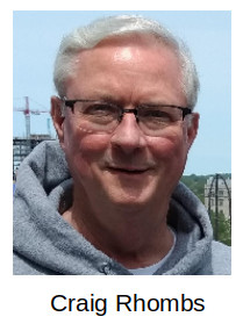
Craig Rhombs, a retired “software guy,” has worked since 1973 to collect family history information about his ancestors. Craig’s ancestors include Colonial Connecticut settlers, and immigrants from Scotland, Baden, Norway, and Russia. He consolidated his collected data at a website: https://281connections.us
Saturday, October 17, 2020
Virtual Meeting (Zoom)
Virtual Meeting (Zoom)
1:30 PM - Business Meeting
2 PM – Program
2 PM – Program
Program: Matt Klee “How to Build Your Crimea Family Tree Using Available Resources”
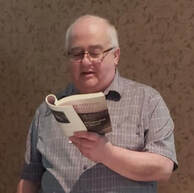
Chapter member Matt Klee will illustrate how you can build your family tree from scratch by using available resources from North America, Russia and Germany. Matt Klee grew up in Halliday, North Dakota. He graduated from NDSU and the University of Virginia; then worked 38 years as a Nuclear Engineer at the Xcel Energy Prairie Island Nuclear Generating Plant. Now retired, Matt is a member of GRHS and serves as the spokesperson and webmaster for the Crimea Regional Interest Group (RIG). Matt is actively involved in the Friends of Crimea Archive Acquisition Team which obtains, translates, indexes and publishes Crimean Catholic vital records obtained
from the Russian State Archive in Saratov.
from the Russian State Archive in Saratov.
Saturday, September 19, 2020
Virtual Meeting (Zoom)
Virtual Meeting (Zoom)
1:30 PM - Business Meeting
2 PM – Program
2 PM – Program
Program: Bill Bosch “Agriculture and Forestry in 19th Century Russia”
The World’s Fair in 1893 in Chicago, IL was known as the “World’s Columbian Exposition” but also included exhibits from countries outside the Americas, including Russia, and other countries. Included in the Russian exhibit was a book titled The Industries of Russia: Agriculture and Forestry, Volume 3. Data for this book was collected in the decade 1880-1892 which coincides with increased emigration by our ancestors from Russia to the Americas. Chapter member Bill Bosch will use refurbished maps and diagrams from this book to answer questions like the following: Did our ancestors really have good, fertile land to farm in Russia? Was drought the persistent problem we have been led to believe? Were they primarily wheat growers? What were crop yields like? Dr. Bosch collected refurbished maps and published them in his book Russian Agriculture in the 1880s. He will explain why he redid the maps and republished them. Perhaps he will also add a few topics from his article in the March 2020 Heritage Review.
The World’s Fair in 1893 in Chicago, IL was known as the “World’s Columbian Exposition” but also included exhibits from countries outside the Americas, including Russia, and other countries. Included in the Russian exhibit was a book titled The Industries of Russia: Agriculture and Forestry, Volume 3. Data for this book was collected in the decade 1880-1892 which coincides with increased emigration by our ancestors from Russia to the Americas. Chapter member Bill Bosch will use refurbished maps and diagrams from this book to answer questions like the following: Did our ancestors really have good, fertile land to farm in Russia? Was drought the persistent problem we have been led to believe? Were they primarily wheat growers? What were crop yields like? Dr. Bosch collected refurbished maps and published them in his book Russian Agriculture in the 1880s. He will explain why he redid the maps and republished them. Perhaps he will also add a few topics from his article in the March 2020 Heritage Review.
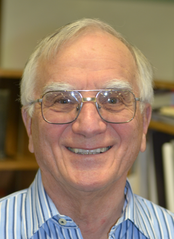
Born in Linton, ND, Bill Bosch grew up on a farm east of there in Emmons County. After elementary schooling in a one-room country school and graduation from Linton High School, he earned bachelor’s and master’s degrees in mathematics and education from North Dakota State University. In 1970, Bosch earned a Ph.D. in mathematics from The University of Nebraska at Lincoln and then taught mathematics for 28 years at Northern State University in Greeley, CO. Following retirement in 1998, Dr. Bosch became interested in German-Russian history and published several books and articles on that topic. Dr. Bosch moved to Spearfish, SD in 2005 with wife Peggy and daughter Julie.
Saturday, April 25, 2020 Spring Banquet
NOTE: Canceled due to Coronavirus (Covid-19)
Saturday, March 21, 2020
NOTE: Canceled due to Coronavirus (Covid-19)
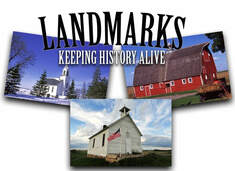
Saturday, February 15, 2020
February Genealogy Research Day
10 AM - Library open for Research
1 PM - Business Meeting
1:45 PM – Program*
Program: Documentary: "LANDMARKS; Keeping History Alive"
The places we’ve lived are often remembered by their architecture and landmarks. Minnesota photographer Doug Ohman’s photos have appeared in seven books published by the Minnesota Historical Society Press. “Landmarks” is his first documentary film, a collaboration with Pioneer Public Television in Appleton, MN, aired on the station in 2019. We’ll view the hour long documentary film featuring barns, churches and schools of southern and western Minnesota, with Minnesotans telling their stories. Chapter member Nancy Gertner is interviewed at her one-room school in Cottonwood County, which appears in the “Schools of Minnesota” of the Minnesota Byways series of books published by Minnesota Historical Society Press.
“Landmarks: Keeping History Alive,” was funded in part by the Arts and Cultural Heritage Fund with money from the vote of the people of Minnesota on November 4, 2008.
A production of Pioneer Public Television,
C 2019.
*NOTE: Program is scheduled to begin earlier as a lengthy business meeting is probably not needed.
February Genealogy Research Day
10 AM - Library open for Research
1 PM - Business Meeting
1:45 PM – Program*
Program: Documentary: "LANDMARKS; Keeping History Alive"
The places we’ve lived are often remembered by their architecture and landmarks. Minnesota photographer Doug Ohman’s photos have appeared in seven books published by the Minnesota Historical Society Press. “Landmarks” is his first documentary film, a collaboration with Pioneer Public Television in Appleton, MN, aired on the station in 2019. We’ll view the hour long documentary film featuring barns, churches and schools of southern and western Minnesota, with Minnesotans telling their stories. Chapter member Nancy Gertner is interviewed at her one-room school in Cottonwood County, which appears in the “Schools of Minnesota” of the Minnesota Byways series of books published by Minnesota Historical Society Press.
“Landmarks: Keeping History Alive,” was funded in part by the Arts and Cultural Heritage Fund with money from the vote of the people of Minnesota on November 4, 2008.
A production of Pioneer Public Television,
C 2019.
*NOTE: Program is scheduled to begin earlier as a lengthy business meeting is probably not needed.
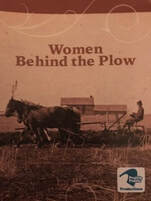
Saturday, January 18, 2020
NOTE: Canceled due to weather
1 PM - Business Meeting
1:45 PM - Program*
Program: DVD "Women behind the Plow"
C 2019 Prairie Public Broadcasting
Women Behind the Plow tells the compelling stories of determined and indefatigable women who settled the North Dakota prairie, and of the new generations, ages 15 – 92, who continue to work on the farm. These women embody the German-Russia expression “Arbeit macht das leben suess”….”Work makes life sweet.”
The 60-minute documentary is based in part on the book Women Behind the Plow which honors the contributions of women who worked in the fields and raised families in a time before electricity, the 10th in a series of award-winning documentaries produced by Prairie Public Television and the NDSU Libraries’ Germans From Russia Heritage Collection.
The women featured have roots in German-Russian country, an area in south central North Dakota comprising Emmons, Logan, and McIntosh Counties. It’s an area strong on agriculture but even stronger on heritage and stories. Chapter member Carol Just is featured.
*NOTE: Program is scheduled to begin earlier as a lengthy business meeting is probably not needed.
NOTE: Canceled due to weather
1 PM - Business Meeting
1:45 PM - Program*
Program: DVD "Women behind the Plow"
C 2019 Prairie Public Broadcasting
Women Behind the Plow tells the compelling stories of determined and indefatigable women who settled the North Dakota prairie, and of the new generations, ages 15 – 92, who continue to work on the farm. These women embody the German-Russia expression “Arbeit macht das leben suess”….”Work makes life sweet.”
The 60-minute documentary is based in part on the book Women Behind the Plow which honors the contributions of women who worked in the fields and raised families in a time before electricity, the 10th in a series of award-winning documentaries produced by Prairie Public Television and the NDSU Libraries’ Germans From Russia Heritage Collection.
The women featured have roots in German-Russian country, an area in south central North Dakota comprising Emmons, Logan, and McIntosh Counties. It’s an area strong on agriculture but even stronger on heritage and stories. Chapter member Carol Just is featured.
*NOTE: Program is scheduled to begin earlier as a lengthy business meeting is probably not needed.
Saturday, December 7, 2019
12 PM - Pot luck meal
1 PM - Program
Program: Weihnachtsfest
Annual Christmas potluck meal including ethnic foods. Place settings and beverages provided by chapter. Program can include singing seasonal and holiday songs in English and German. Sometimes a special visitor shows up.
12 PM - Pot luck meal
1 PM - Program
Program: Weihnachtsfest
Annual Christmas potluck meal including ethnic foods. Place settings and beverages provided by chapter. Program can include singing seasonal and holiday songs in English and German. Sometimes a special visitor shows up.
Saturday, November 16, 2019
10 AM - Library open for Research
1 PM - Business Meeting and elections
2 PM - Program*
Program: Jim Gessele “Lost...and found…in translation: A personal lesson learned while deciphering German words. It’s all about telling our stories”
Guests will come away knowing it’s not enough to simply fill in a genealogy chart. Jim will share excerpts from his latest translation of Fierce as a Lioness & Busy as a Bee: In Grandmother’s Footsteps (anticipated publication early 2020) a book written by Martha Betz, who works as a genealogist at the Bessarabian Heimat Museum in Stuttgart, Germany.
Longtime North Star Chapter member, Jim Gessele, currently has five translated works published and in circulation. This book, Fierce as a Lioness…., will be the sixth. Proposed publication date is early 2020. Seven more translated works await publication.
(*note: Bill Bosch, Spearfish, SD, was initially scheduled for this date. He is unable to make it at this time, but we will host him another time in the future)
10 AM - Library open for Research
1 PM - Business Meeting and elections
2 PM - Program*
Program: Jim Gessele “Lost...and found…in translation: A personal lesson learned while deciphering German words. It’s all about telling our stories”
Guests will come away knowing it’s not enough to simply fill in a genealogy chart. Jim will share excerpts from his latest translation of Fierce as a Lioness & Busy as a Bee: In Grandmother’s Footsteps (anticipated publication early 2020) a book written by Martha Betz, who works as a genealogist at the Bessarabian Heimat Museum in Stuttgart, Germany.
Longtime North Star Chapter member, Jim Gessele, currently has five translated works published and in circulation. This book, Fierce as a Lioness…., will be the sixth. Proposed publication date is early 2020. Seven more translated works await publication.
(*note: Bill Bosch, Spearfish, SD, was initially scheduled for this date. He is unable to make it at this time, but we will host him another time in the future)

